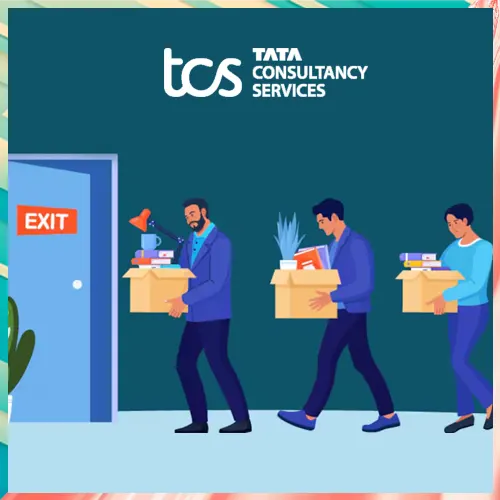
In the second quarter of FY26, Tata Consultancy Services (TCS) reported a significant workforce reduction, with headcount falling by 19,755 employees—from 613,069 in June to 593,314 in September. This marks one of the largest quarterly workforce declines in the company’s history.
TCS attributed the reduction to a mix of voluntary attrition, performance-based exits, and bench adjustments. The company’s Chief Human Resources Officer stated that around 6,000 employees were formally "released", representing approximately 1% of the workforce. TCS emphasized that support measures such as counselling, severance benefits, and outplacement services were being offered to affected employees.
However, the Nascent Information Technology Employees Senate (NITES), a prominent employee advocacy group, has challenged TCS’s narrative. According to NITES, at least 8,000 additional employees have exited without proper disclosure, suggesting the company is under-reporting layoffs or masking the real scale of workforce reduction.
The union also pointed to a decline in the company’s attrition rate, arguing that if fewer employees are voluntarily leaving, the high drop in headcount is more likely the result of involuntary exits rather than natural attrition.
This discrepancy has triggered concerns around transparency, corporate governance, and the potential violation of labor laws. NITES has called for regulatory intervention, suggesting the layoffs may contravene employment regulations under the Industrial Disputes Act.
On the financial front, TCS incurred a ₹1,135 crore severance cost in Q2, signaling the layoffs were substantial. The company maintains that these workforce changes are part of a strategic pivot to become "future-ready", aligning talent with emerging needs in AI, automation, and digital transformation.
Still, the magnitude and timing of the layoffs—especially amid ongoing revenue growth—have drawn scrutiny. The move reflects a broader tension in the IT industry: balancing cost optimization with employee trust and organizational transparency.
As scrutiny builds, several questions remain: Will regulators act on NITES’s complaint? Will other IT firms follow suit in restructuring? And most importantly, can TCS sustain its growth while ensuring fair treatment and clarity for its workforce?
See What’s Next in Tech With the Fast Forward Newsletter
Tweets From @varindiamag
Nothing to see here - yet
When they Tweet, their Tweets will show up here.





























